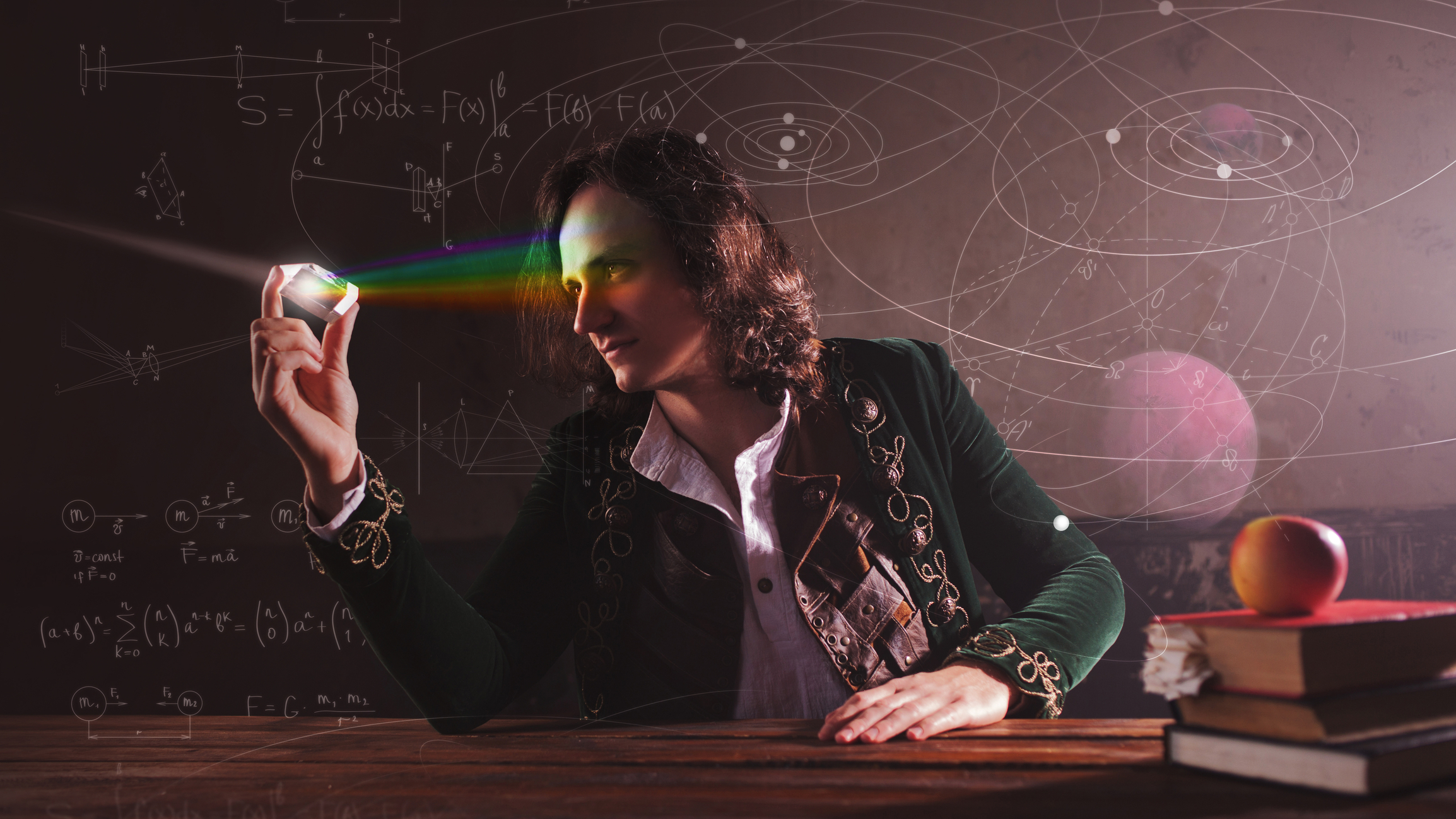Newton’s 3 Laws of (e)Motion

First Law of (e)Motion: Every emotion tends to remain in that state of emotion, unless an external force is applied to it. If you want your emotion to change, you have to do something to change it. Or else, it stays the same.
A lot of teens tell me that when such-and-such happens, they’ll be happy. When they graduate. When the semester is over. When parents stop worrying about them. When they lose 10 pounds. And, actually, the teens are sort of right. These events act on emotions in a postive way. The problem is, the events don’t sustain happiness. What’s worse, they are often not within a teen’s control (how do you “make” parents stop worrying about you?).
You can apply external force to your emotions, all by yourself. You don’t have to wait for life to affect you. Just understand and follow the next couple laws of (e)Motion.
Second Law of (e)Motion: The relationship between feelings, ideas, and behaviors is (Feelings = Ideas x Behaviors). Your thoughts and behaviors create how you feel, even if you’re not trying to create any feelings.
Your ideas are in fact powerful messages to your physiology. They create neurochemical events that generate feelings. When you sit in class thinking, over and over: “This is so boring,” you are refiring the emotion of irritability. If you tell yourself how awkward you are at a party, you create anxiety. If you focus on all the things you “need” but don’t have (e.g., better clothes, better body, higher grades, cooler friends, nicer parents), you sustain sadness.
Behavior also plays a role in creating emotions.
- For example, there is such a thing as “acting depressed.” This doesn’t mean faking depression. It means behaving in ways that are consistent with depression. Sleeping a lot. Over-eating. Not exercising. Seeking out sad movies/songs. Isolating yourself. Not showering. You’re depressed, so why bother, right?
- There is such a thing as “acting anxious,” which is basically avoiding things that make you uncomfortable or nervous. So you don’t try out for the team. And you don’t tell your classmate to stop putting you down. You don’t go on the rollercoaster with your friends. And you don’t tell the Starbucks barista she messed up your $7 drink. You’re anxious, after all, and those things are pretty uncomfortable, right?
- Irritability can be created by not getting enough sleep and by skipping meals. It can be sustained by stomping around the house complaining, giving mean looks to people around you, and trying to get through the day as quickly as possible. Irritability can be strengthened by procrastinating on homework you know you have to do, and by bickering with siblings. You’re grumpy, and it’s the world’s fault, right?
You don’t even have to try to create emotions. You’re already doing it. You probably do it most of the time. Like now, how are you feeling and what are you thinking/doing to sustain that feeling? If you want to create happiness, follow the Third Law of (e)Motion…
Third Law of (e)Motion: For every idea and behavior, there is an opposite and equal idea and behavior. When you act and think opposite to how you feel, you will change your feeling.
Emotions won’t hurt you. They can be unpleasant. So what: they don’t last forever! If you can successfully tolerate and manage your feelings in the moment, you’ve mastered the Laws of (e)Motions!
When we’re upset, we often think and act in ways that make things worse. The master of (e)Motion does this: act and think contrary to how you feel. Do the opposite thing. If you don’t feel like going to the gym…go to the gym! If you are afraid to ask for help…ask for help! If you are thinking about all your flaws…think about all the great things about you!
When you think and behave opposite to how you feel, you change your emotion. It really can be that simple. You are not at the mercy of your feelings. Apply force with your thoughts and behaviors, and start to feel better.
Newton’s 3 Laws of (e)Motion
Disclaimer: Isaac Newton didn’t actually write or say any of this.





